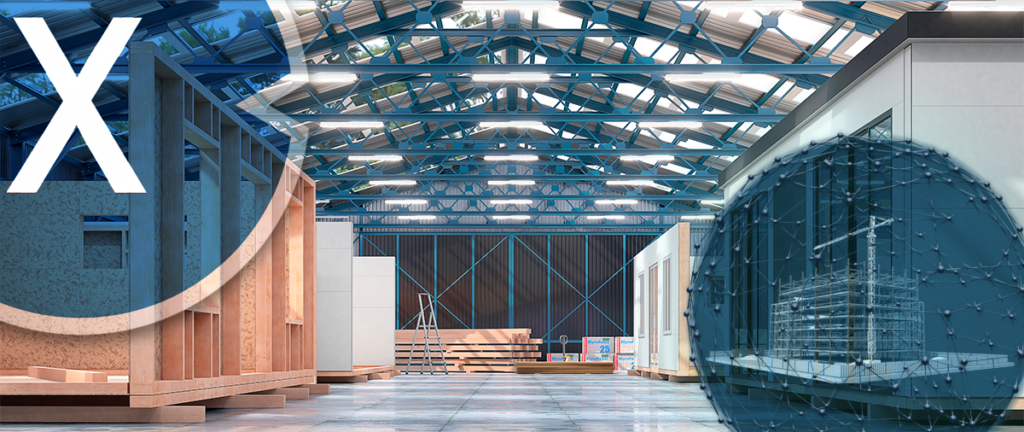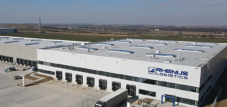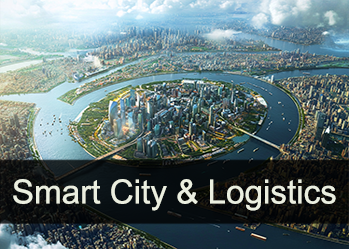Decline in transactions on the German market for industrial and commercial real estate in the first half of the year (2023)
Language selection 📢
Published on: August 14, 2023 / Update from: August 14, 2023 - Author: Konrad Wolfenstein
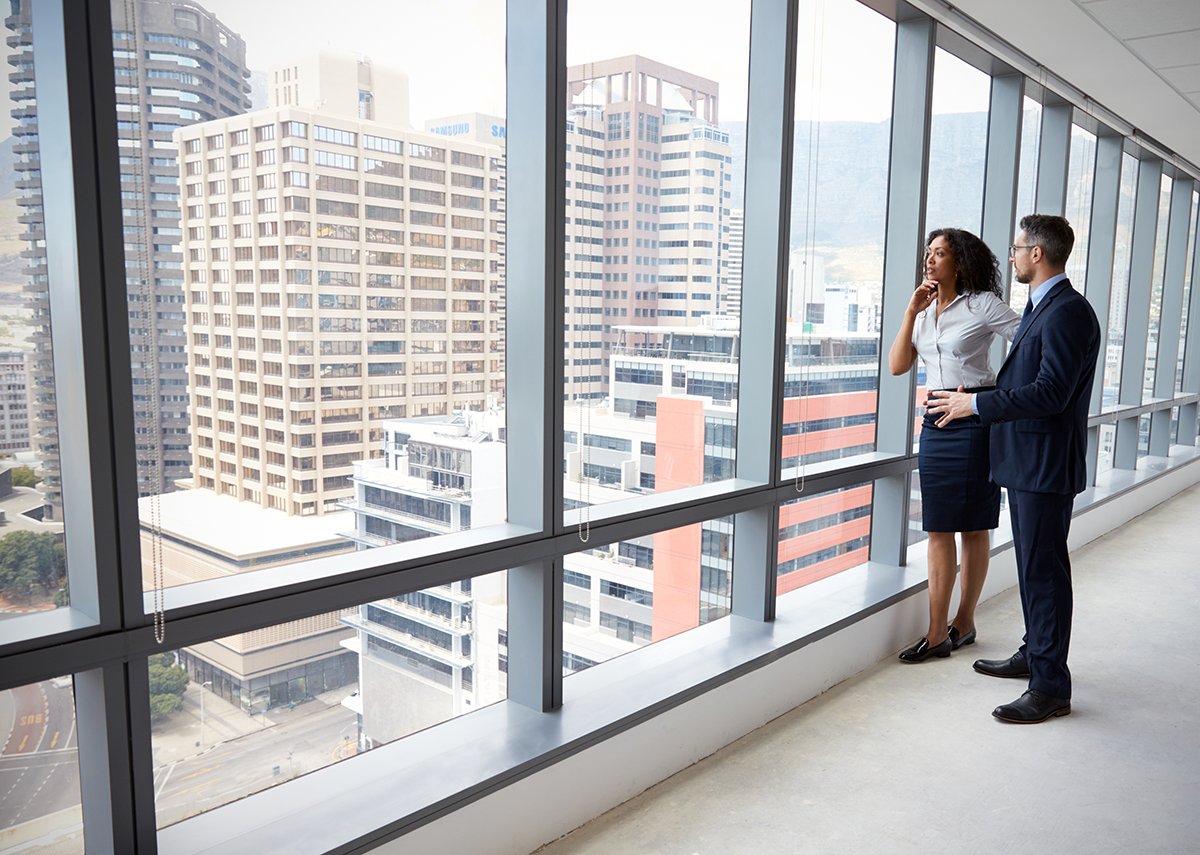
Decline in transactions on the German market for industrial and commercial real estate in the first half of 2023 - Image: Monkey Business
Logistics in transition: Impact of the decline in real estate transactions on the warehousing and logistics sector
The first half of 2023 was characterized by a noticeable decline in transactions on the German industrial and commercial real estate market. This development had far-reaching impacts on various sectors.
Challenges in the warehousing and logistics sector
The impact of the decline in transactions is being felt in several areas. There have been significant changes, particularly in the warehousing and logistics sector. Demand for warehouse space and logistics real estate fell, which could indicate slowing economic activity and possible uncertainties in the global supply chain. Companies specializing in courier, express and parcel services faced reduced orders, leading to a reassessment of their business strategies.
Suitable for:
Innovation approaches and technologies
Given these challenges, innovative approaches and technologies are crucial to maintaining efficiency in the logistics sector. The increased use of driverless transport systems and the implementation of Industry 4.0 concepts offer opportunities to increase productivity and adapt to changing market requirements. Digitalization plays a central role in optimizing processes, improving supply chain tracking and creating seamless communication between different players.
E-commerce and future prospects
The e-commerce sector also influences the changes in the logistics sector. The increasing popularity of online shopping leads to an increased need for storage capacity and efficient shipping solutions. Companies must prepare to meet the increasing demands of online customers while keeping an eye on their environmental impact. The creation of new logistics centers and the integration of sustainable practices could be important steps here.
view in the future
Despite the temporary decline in the first half of 2023, there is a good chance that the industrial and commercial real estate market will regain momentum in the long term. Changing economic dynamics open up space for innovation and adaptation. Companies that can invest in technologies that increase efficiency and respond flexibly to market developments will likely be better positioned to drive future growth.
Given the current challenges and future prospects, it is essential that companies in the logistics sector act flexibly and respond to changing market requirements. By leveraging technology, implementing sustainable practices and creating efficient logistics solutions, companies can have a positive impact on their competitiveness and long-term development.
Decline in transactions on the German industrial and commercial real estate market: An overview
The first six months of 2023 have seen a notable slowdown in the German industrial and commercial real estate market. This decline in transactions has impacted different sectors and industries and raises important questions about the reasons and possible consequences.
Reasons for the decline in transactions: Structural changes and uncertainties
The noticeable decline in transactions on the German market for industrial and commercial real estate can be partly explained by structural changes and uncertainties. The ongoing pandemic, trade restrictions and associated economic uncertainties have led to a more cautious approach by many investors. Additionally, changes in work models, such as increased remote work, may have influenced demand for certain property types.
Challenges in the warehousing and logistics sector: changes in purchasing behavior and supply chains
The warehousing and logistics sector was particularly affected by this decline. The transformation in consumer shopping behavior towards online shopping has led to increased demand for warehouse space. However, this trend was slowed by reduced transaction activity in the first few months of 2023. Companies that wanted to invest in modern logistics and warehouse space were slowed down by the uncertainty.
New dynamics in the retail sector: adapting to changing needs
The retail sector also faced new challenges. The shift to e-commerce and changing customer preferences have meant that retailers need to increase their presence in urban centers and high-traffic areas to be successful. However, this often requires restructuring and new investments, which have been undertaken more hesitantly due to uncertain market conditions.
Importance of technology and sustainability: Long-term trends are here to stay
Despite the temporary decline in transactions, long-term trends such as the importance of technology and sustainability in the real estate industry remain. Commercial properties that are energy efficient and incorporate state-of-the-art technologies will continue to be in demand as investors feel more confident again.
Outlook for the second half of the year: potential recovery and opportunities
While the first half of 2023 was marked by uncertainty, there are signs that the second half of the year could bring some recovery and opportunities for the German industrial and commercial real estate market. Progress in dealing with the pandemic and possible improvement in economic conditions could boost investor confidence and lead to increased transaction activity.
The decline in transactions in the first half of 2023 shows how closely the real estate market is linked to economic and social developments. Different sectors are adapting to new realities and looking for ways to position themselves successfully in a changing landscape.
Plan your solar system for the most common applications conveniently online with our solar system planner!
With our user-friendly solar system planner you can plan your individual solar system online. Whether you need a solar system for your home, your business or for agricultural purposes, our planner offers you the opportunity to take your specific requirements into account and develop a tailor-made solution.
The planning process is simple and intuitive. You simply enter relevant information. Our planner takes this information into account and creates a tailor-made solar system that meets your needs. You can try out different options and configurations to find the optimal solar system for your application.
Additionally, you can save your plan to review later or share with others. Our customer service team is also available to answer your questions and provide support to ensure your solar system is optimally planned.
Use our solar system planner to plan your individual solar system for the most common applications and advance the transition to clean energy. Start now and take an important step towards sustainability and energy independence!
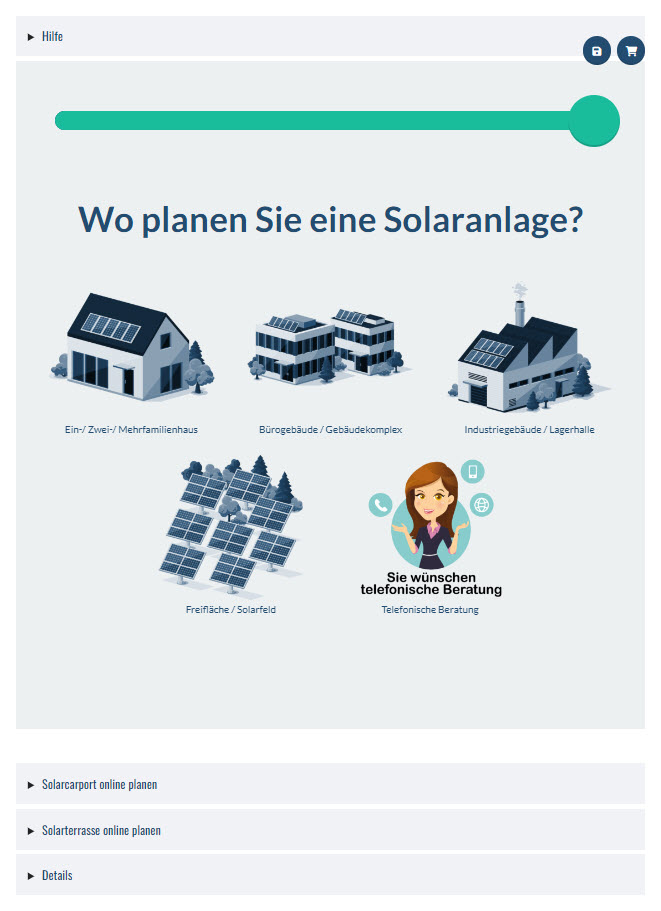
The solar system planner for the most common applications: Plan the solar system online here - Image: Xpert.Digital
More about it here:
📣 Energy-related renovation and new construction, consulting, planning and implementation for industry, retail and municipalities
Our experienced team will support you in optimizing your buildings to reduce energy consumption and promote sustainable energy use with photovoltaics. We analyze your individual needs and create tailor-made concepts that make sense both economically and ecologically. Regardless of whether it is about the energy-efficient renovation of existing buildings or the construction of new energy-efficient structures, we are at your side. Industrial facilities, retail buildings and municipal facilities can reduce their energy costs and reduce environmental impact while improving the comfort and efficiency of their buildings through our tailored solutions.
👨🏻 👩🏻 👴🏻 👵🏻 Energy-saving renovation and new construction, advice, planning and implementation for private households
We offer comprehensive support for private households in the energy-efficient renovation and construction of new buildings with photovoltaics. Our experienced team is at your side to help you advise, plan and implement your sustainable energy solutions. We analyze your energy consumption, identify savings potential and develop tailor-made concepts to improve your energy efficiency. From improving building insulation to installing energy-efficient windows and doors to installing photovoltaic and solar systems - we accompany you step by step to make your home more energy efficient and environmentally friendly. Trust in our expertise and benefit from the numerous advantages that energy renovation and the use of renewable energies offer you. Together we will create a sustainable future for your home.
Sustainable logistics: Environmentally friendly practices as a competitive advantage
Moving forward: Opportunities and challenges for the logistics sector after the decline in transactions
The decline in transactions on the German market for industrial and commercial real estate has had a particularly strong impact on the logistics sector. Despite the challenges, however, there are also promising opportunities for companies that are willing to adapt to the changing conditions.
Changes in purchasing behavior and supply chains: Adaptation is crucial
The accelerated shift to online shopping has driven up demand for logistics and warehousing space. The increased volume of goods and the need to enable quick deliveries have increased pressure on logistics companies. Flexibility and efficiency are crucial to meet the increasing demands of consumers.
Exploring new technologies: automation and artificial intelligence
In order to meet the increased requirements, logistics companies are increasingly relying on technologies such as automation and artificial intelligence. Automated warehouses, self-driving delivery vehicles and intelligent route planning are examples of innovations that aim to increase efficiency while alleviating the skills shortage in the logistics sector.
Sustainability as a competitive advantage: Green logistics in focus
A central trend in the modern logistics sector is sustainability. Customers and investors are increasingly placing more value on environmentally friendly practices. Logistics companies are investing in electric vehicles, renewable energy for warehouses and optimized delivery routes to reduce their environmental footprint while reducing costs.
Flexibility and innovation: logistics companies on the path to long-term growth in a changing market
The logistics sector is facing a crucial period of change, where flexibility and innovation are essential to ensure long-term growth.
Adaptability to change: Flexible storage and supply chains
The global pandemic has highlighted the importance of adaptability. Logistics companies that can respond flexibly to unforeseen events are better positioned to overcome bottlenecks and provide continuous service to their customers.
Exploring new delivery models: same-day delivery and micro-depots
Consumer expectations for fast deliveries are continually increasing. Logistics companies are working on innovative solutions such as same-day delivery and micro-depots to reduce delivery times and provide a seamless experience.
Suitable for:
Cooperations and networks: strengthening competitiveness
In a changing market, collaborations between logistics companies and technology partners can be advantageous. Shared networks and resources can increase efficiency and increase competitiveness in the industry.
Shortage of skilled workers and further training: investing in the workforce of tomorrow
The logistics sector is struggling with a shortage of skilled workers, particularly in the area of technology experts. Investments in employee training and development are crucial to strengthen skills and meet the need for qualified personnel.
Reinvent yourself
The challenges that the logistics sector has experienced as a result of the decline in transactions in the real estate market, at the same time, provide an opportunity for companies to reinvent themselves and achieve long-term growth through flexibility, innovation and sustainable practices. Adapting to new realities and leveraging new technologies will be crucial to succeed in this changing market.
Logistics in the age of innovation: Technological solutions for a dynamic industry
Innovative ways in logistics: Technologies and approaches for changing market requirements
Changing market demands and the decline in transactions in the German real estate market have increased pressure on the logistics industry to use innovative technologies and approaches to adapt and grow.
Automation and robotics: increasing efficiency along the supply chain
The introduction of automated processes and robotics in logistics has accelerated. Warehouses use robots to pick and pack goods. This not only reduces error rates, but also speeds up the entire process and helps increase efficiency.
Drone Delivery and Autonomous Vehicles: The Future of Delivery
Drone deliveries and autonomous delivery vehicles are technologies that are increasingly coming into focus. Some companies have already successfully tested drones for delivering smaller packages. Autonomous vehicles have the potential to shorten delivery times and make logistics more environmentally friendly overall.
IoT and real-time tracking: Transparency along the supply chain
The Internet of Things (IoT) makes it possible to track goods in real time and collect data about the status of the delivery. This improves transparency along the supply chain, minimizes delays and enables more efficient planning of resources.
E-commerce and logistics: Adaptation to increasing requirements and sustainable future prospects
The rise of e-commerce has presented unique challenges to the logistics industry. But at the same time it also offers the opportunity to develop sustainable approaches.
Same-day delivery and fulfillment center: Fast and efficient deliveries
Consumers' increasing demand for fast deliveries has led to the development of same-day delivery services. Fulfillment centers that specialize in the rapid picking and shipping of goods are becoming increasingly important.
Transforming urban deliveries: micro-depots and e-mobility
In urban areas, delivery challenges are becoming increasingly complex. Setting up micro-depots near cities and using electric vehicles can reduce traffic density and contribute to the sustainability of deliveries.
Sustainability in logistics: reducing emissions and waste
E-commerce has led to an increase in packaging materials. Logistics companies are increasingly turning to sustainable packaging solutions that minimize waste and reduce environmental impact.
Last mile and artificial intelligence: Efficient route planning
The last mile of the supply chain is often the most time-consuming and expensive part. Artificial intelligence helps optimize routes and deliveries to use resources more efficiently.
The logistics industry is facing exciting times in which innovative technologies and approaches can not only increase efficiency, but also lay the foundation for sustainable and future-oriented development. E-commerce is driving this transformation and giving companies the opportunity to adapt to changing market requirements and grow successfully.
Smart City & Intelligent Cities, Hubs & Columbarium – Urbanization Solutions – City Logistics Consulting and Planning



